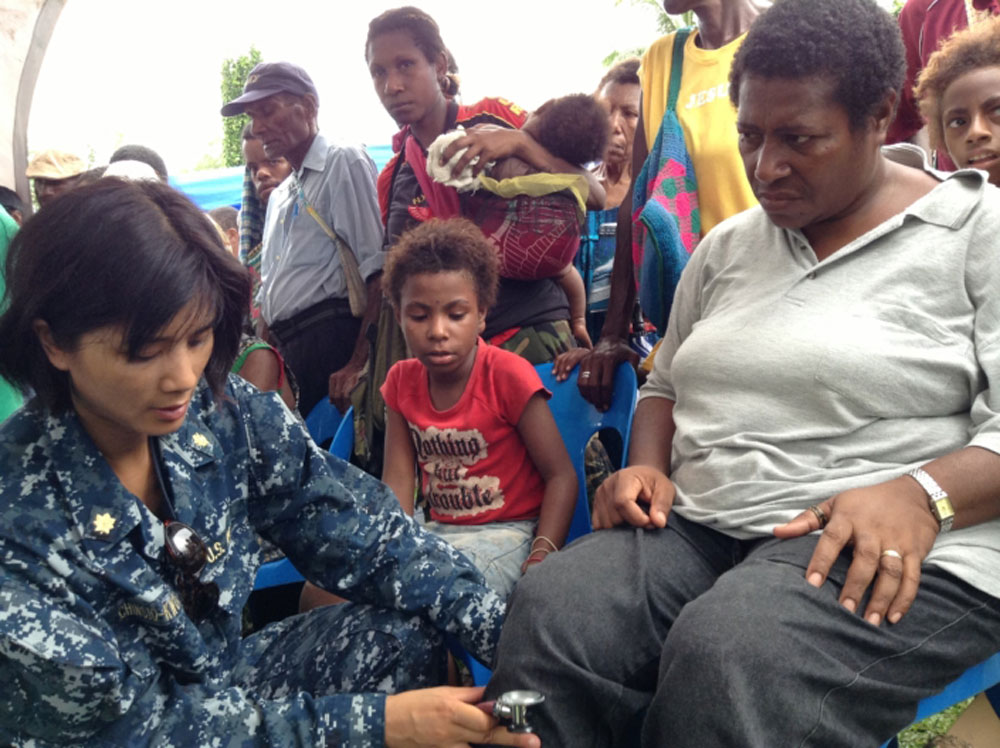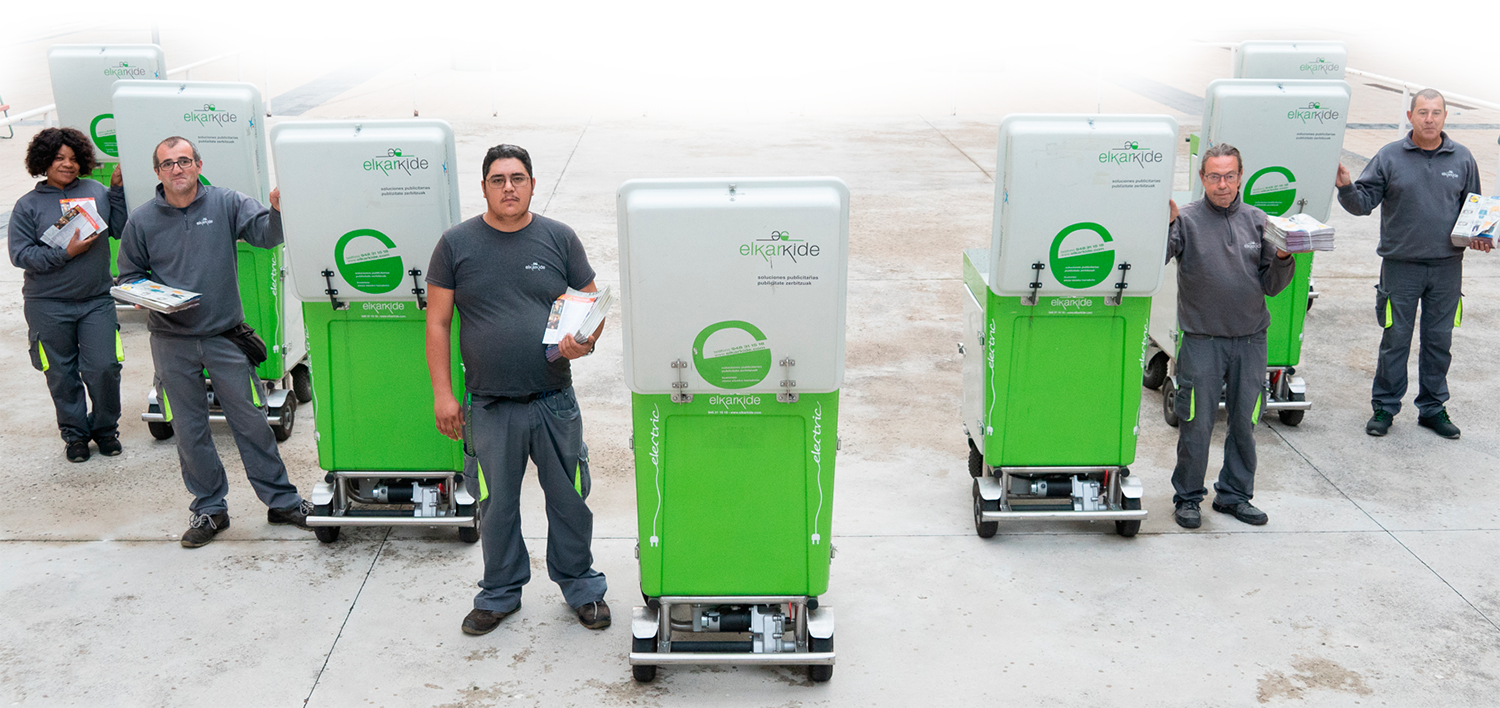Progressive and retrograde therapies in the same house
- The most prestigious congress held each year in the field of autism will be held for the second time outside the United States. It will be held in Donostia-San Sebastian, in May, and not by chance: they have one of the most developed programs in Gipuzkoa to help people with autism. Very close, however, the parents of Lapurdi, Zuberoa and Nafarroa Beherea have complained of forty years of delay in this issue because of the leading role played by psychoanalysis (izan) in the French State.
Aitzol, who will be 8 years old in September, has come with her mother to the appointment that Gautena has in the Association of Autism of Gipuzkoa. Psychologist Jara Larreategi has advanced Aitzol, through images, what they will do in today's program. Then, the three have played the letters: they have composed words with the letters and they have tried to invent the hidden word of the other through questions. It's about working with reading and writing in an attractive way. Aitzol welcomes the discovery of the hidden word of the psychologist; he is a joyful boy, of those who do not stop, “a little theatrical” says the mother, when the child has been thrown to the ground, and is very caring with others, although he has problems relating and expressing himself. He loves animals and that's why he's chosen Baserria as the second game. They've also played in theater and cooperative games, and at the end of the session, the boys and girls have taught us the Porrotx van, a great follower of the clown. Aitzol doesn't look like an isolated, lonely person who comes to mind with the word autism.
In fact, Autism Spectrum Disorder is very heterogeneous and covers children with different needs: at one end there is Asperger's Syndrome – autism without intellectual setbacks, to put it briefly – and at the other end, deep autism, with an intellectual setback. “It is important to take this diversity into account, since from the same general starting point the treatment of each one of them will have to be very personalized,” says Ramón Barinaga, director of Gautena. Thus, depending on the degree of autism and intellectual disability or the absence thereof, the characteristics will be different, but ultimately the disorder affects the communication and socialization capacity. The child presents problems of oral and non-verbal communication, relationship and empathy with others, often with very limited interests, repetitive actions or attitudes and repetitive use of language are common characteristics and may present deficiencies of social understanding - difficulties to understand that the person next door is another brain and another specialized person.
It affects boys four times more than girls and Barinaga explains that according to recent studies one in 88 newborns has autism. The origin is neurobiological – atypical development of the brain that occurs in the uterus – and it has been shown to have genetic characteristics, which can be inherited, but it is a consequence of multiple factors.
Working communication from the start is fundamental
Gautena has a team specialized in proper diagnosis, a psychiatrist and six psychologists. Autism is usually identified at 2-3 years of age and from the diagnosis of each of them, depending on their strengths and weaknesses, children receive an individual help program. “We say that the needs of people with autism are of anyone, but that they need adaptations, differentiated responses,” says Barinaga. Like everyone else, we need relationships with the rest of human beings, and we help them overcome their barriers and adapt them socially.” In the first phase, two or three years after the diagnosis, it is essential to work on communication, which will give you the ability to learn. As they usually have great difficulty speaking, alternative communication routes are sought, such as images, labels, pictograms or photographs, which have good visual memory. Ancillary tools are also being multiplied, such as the e-Mintza software application, which serves to point out actions and objects on the screen of the computer or tablet.
They also communicated with Aitzol by pictogram at first, when they made a diagnosis at 2 and a half years and took him to Gautena. He has already assimilated oral language, even though he has a delay in language and uses ecolalic language – he repeats the phrases he has heard, imitating the way and melody heard. In the case of Aitzol, the main objective has been to show strategies that help parents and family members. Aintzane Ollokiegi, Aitzol's mother, has recognized that these tips are basic, because at first they felt lost and didn't know how to communicate with their child: “Now we play with another peace of mind and at Etxalar we feel very comfortable, because we all know each other and have great support. Citizenship is sensitized, the baker, for example, had pictograms in the bakery, and all that helps Aitzol to develop autonomy; the involvement of the people has been very important for the child to adapt to the reality surrounding him, and that would be very difficult to achieve in a big city.”
Gautena's goal is for people with autism to be integrated into society as far as possible, so that they have the best possible quality of life. Inspired by the TEACCH method, the programme places the emphasis on the educational and community perspective and talks from the ecological point of view that what the person needs is not an isolated help – so many hours a week with a psychologist – but an integration and adaptation in normal environments thanks to the cooperation of all the people involved in their lives.
In school, one more
Although in their day they were admitted to care or mental health centers, nowadays many children with autism are in regular centers with different levels of care. For those most in need, Gautena has its own classrooms, distributed in 16 regular centres in Gipuzkoa, where five or six pupils and two teachers meet. They also participate in leisure and colonies and the association has designed their own leisure for boys and girls who cannot participate in normalized activities, weekends, family…
Aitzol studies at the Etxalar school. There are ten boys and girls in the classroom and in addition to the tutor she has her own educator and a tablet that helps to follow the dynamics of the school. According to the psychologist Larreategi, in Gautena they also have many of the games they have in the center, “because this is an artificial, clinical context, so that what has been worked here is useful to put it into practice. But the goal is always reality, that is why education is important, and in the classroom, aspects that we do not work here are worked out and the rest of the children teach them the limitations. It’s also enriching for them to realize the diversity that exists.”
Also in adolescence and adulthood, the objective is integration: They are channelled to the Gureak network for employment and to the day centres to which they do not have the capacity to work. “All of this in stable and predictable environments, where routine and meaningful planning help them,” adds Ramón Barinaga.
As has been explained, the spectrum of autism is very diverse and, therefore, also the evolution and autonomy that each one will achieve according to its conditions. In general, the director has ensured that, with a good programme, they evolve positively: “Own limits will be maintained (for example, if there is an intellectual disability, it is unalterable), but strategies to compensate for weaknesses can be alleviated or worked out. Autism is associated with multiple behavioral problems (aggressions, anger…) and improves over time the treatments. In some cases, however, medicines are used. Less than 30% of the people we collaborate in Gautena receive psychotropic medication.”
As for the countries with the best models for treating autism, Barinaga talks about the Nordic countries: “In general, the response is better and more homogeneous in countries with more developed social welfare and in the Nordic countries, the protection of the public system through the services offered by health, educational and social institutions is high”. In this regard, the director says that in Gautena they have great public support: “There is a great tradition in Gipuzkoa of responding to the needs of people with disabilities and the concertation model is widespread, based on collaboration between social initiative associations and public administration.” Gautena, founded in 1978, serves some 600 families and has 200 professionals. APNABI-Autism Bizkaia follows a similar model and supports 700 families; in Álava the public initiative has prevailed, since it is the Diputación itself that responds directly to the needs of people with autism; and in Navarre the ANA association, which serves 130 families, was founded a year ago.
In the realm of psychoanalysis
The situation is very different in Lapurdi, Zuberoa and Baja Navarra. Dylan, 17, has deep autism, does not speak, has 2 years of intelligence, and has never been in school, has not received a structured education and has suffered techniques such as packing in childhood, in psychiatric centers. The packing consists of squeezing the baby's naked body as a mummy with a wet blanket refrigerated at 5 or 10 degrees Celsius and keeping it so for about 20 minutes. Psychoanalysts argue that it creates a second skin, a psychic skin, that serves to recover emotions and sensations from the past and to connect with the environment. Dylan's parents are clear that on the subject of autism the French State is lagging far behind: “We were ignorant and we thought it was OK, but we have seen that our son has lost a lot of time with them and has not received good treatment; if he had had the right therapy from the beginning, he would have had more communication capacity and less delay.”
The problem is that therapists who have so far cared for people with autism have not received proper training, but based on a complete psychoanalysis. Cécile Lafitte has made it clear that psychoanalysis, as in Argentina, has a lot of weight in France and that interpreting autism from those glasses is a mistake. Lafitte, mother of Dylan and president of the TED Autisme association of Baiona, argues that psychoanalysts claim that the origin of autism lies in the toxic relationship between mother and child when there is a mistake in such connection: “For boys and girls with autism, not communicating is an option, they create a kind of shell around and the goal of the psychoanalysts is to remove that shell, hoping that children will change the choice and say it suddenly, ‘now it’s fini, I’ll communicate and speak’.”
The result is not to the parents’ liking: only 20% of children with autism are enrolled in the state and most have been assigned to special centres, such as the Educational Medical Institute (IME) or day hospitals. In Iparralde there are five IMIME – one in Kanbo, specialising in autism and decent work, according to Lafitte – and one day hospital in Baiona. In them the psychoanalytical theory has been imposed and “they did nothing, put the child in the pool and observe how it moved in the water, packing… and that, but not the behavioral therapy, neither the conductive and educational treatment, nor anything. Associations of mothers and fathers have made progress in improving the situation, we have had to tell therapists how to act with autistic children, how to work communication, because they are not professionals, they have not had training, it is not their fault”.
Gradually changing thanks to the parents’ struggle
It has been a real war between the associations of mothers and fathers and the advocates of psychoanalysis. In October 2011, the parents’ protest in Biarritz against packing had a huge impact, and things are changing. Last year, the French High Power of Health published a letter rejecting psychoanalysis in the treatment of autism and advocating education and integration. It prohibited psychoanalytic theories in the training of therapists, including techniques such as packing – practice against ethics and human rights, according to international experts. Steps are also being taken to integrate children with disabilities into mainstream schools. The law that enabled this integration was a kind of revolution in 2005, but schooling has not always been done in the best possible way. However, in the schools of Biarritz, San Juan de Luz and Hazparne have managed to integrate five children with autism, accompanied by a specialized educator.
“We come from afar, says Dylan’s mother, but the future will be good, thanks to the change of direction of the High Health Authority. In addition, parents form themselves and being Gautena in Gipuzkoa is very useful to us, they have helped us a lot. We have to improve the diagnoses and treatments of the therapists that doctors do, and for that, psychiatrists have to have a good education, just like educators, orthophonists, teachers… They have to learn how autism works, how the mind works to propose things that go well. And discard psychoanalysis, of course. The French state still has a long way to go, the mentality of the years does not change overnight, but we go.”
Dylan is also advancing. He started six years ago with the orthophonist, and it was a turning point to start working on communication. They made an image tool to indicate the most common needs, and thanks to the e-Mintza app, you can now do the same on the tablet screen, more comfortably. “Incommunicability affected Dylan very negatively, I died, I screamed, I got violent… and now it’s much quieter. Her life has changed a lot and her friends tell us, ‘she doesn’t scream anymore, she’s quieter, she looks in the eyes, she gives her hand…’. He will always be in-depth, but he is better, no doubt,” says his father, Jean Marc Abadie. With proper treatment, in the end, those born with Autism Spectrum Disorder can achieve a better quality of life.
Azken urteotara arte, apenas egon den ikerketarik autismoaren arloan, baina 2.000. urtetik aurrera areagotu egin zen interesa. Ramon Barinaga Gautenako zuzendariaren esanetan, AEB buruan dago gai honetan, “han oso kapitalistak eta pragmatikoak direnez ulertu dutelako ikuspegi ekonomikotik ere komeni dela ikerketa garatzea, datuek baitiote autismoarekin jaiotako haur kopurua handia dela eta osasun publikoari eragiten diola”. Joaquín Fuentes mediku eta Gautenako aholkulari zientifikoak diagnostiko eta tratamendu eraginkorrenei buruzko ikerketa garrantzitsuak egin ditu eta bere gestioari esker, autismoaren ikerketez egiten den kongresurik prestigiotsuena Donostian egingo da maiatzaren 2tik 4ra bitartean, Kursaalen. IMFAR kongresua (International Meeting For Autism Research) 2001ean egin zen lehenengoz, eta zientzialari, psikiatra eta genetistei dago zuzendua. Prebentzio eta tratamenduan dauden azken ikerketez hitz egingo da, eta 1.600-1.800 aditu gerturatzea espero da. Teknikoa eta espezializatua da kongresua, baina Barinagak adierazi digunez, oso parte-hartzailea ere bada: eskola magistralak eskaini beharrean, interaktibitatea eta tailerrak hobesten dira, eta ikerketa zentroetako nahiz unibertsitateetako ikerlariek euren lana partekatzea da asmoa.
Bi erizainetatik batek lanean eraso sexistak jasaten dituela azalerazi du Erizainen Ordenak joan den urte bukaeran egin ikerketak. 21.000 erizainek ihardetsi dute, sektore pribatu, publiko eta liberaletik. Hauetan 2.500 gizonak dira.
These were my last words when we left, held hand in your deep breathing sleep. Your heart stayed forever without a special, simple, dignified pain. As you want and demand. How we want and respect.
Already a month before the arrival of winter, the last days of the longest night,... [+]







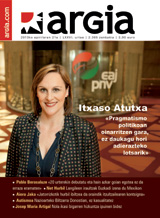

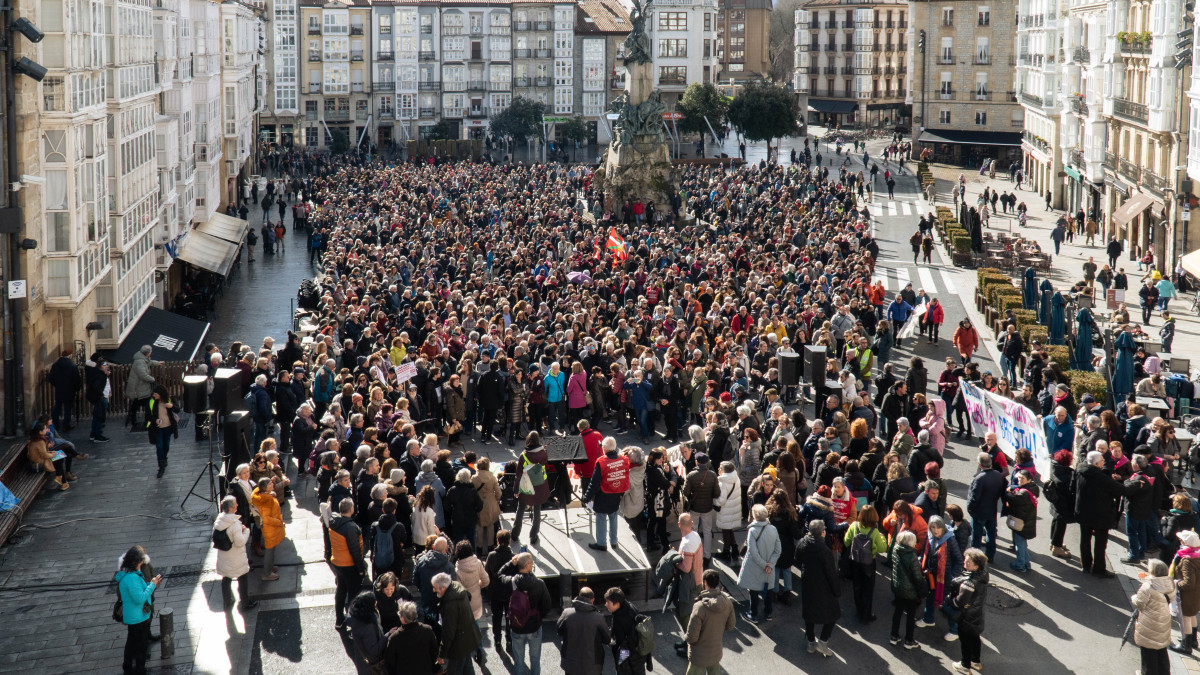

.jpg)

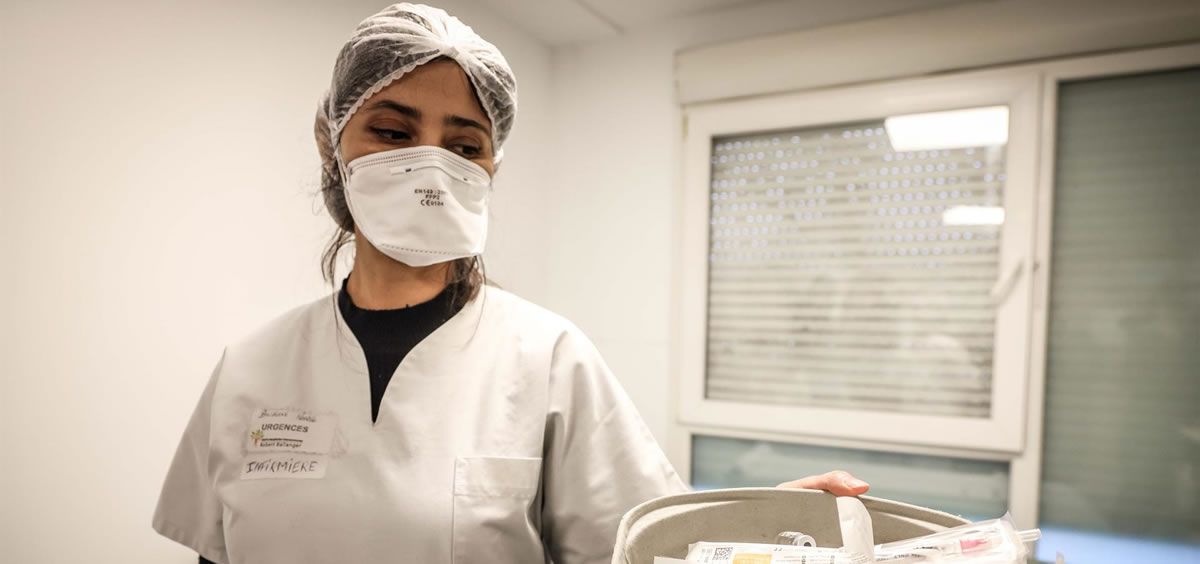
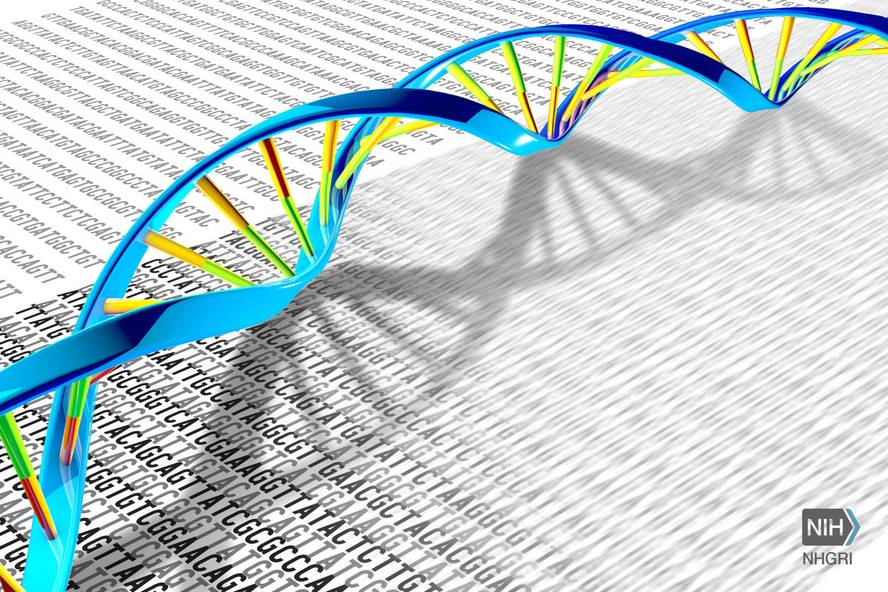

.jpg)
.jpg)

